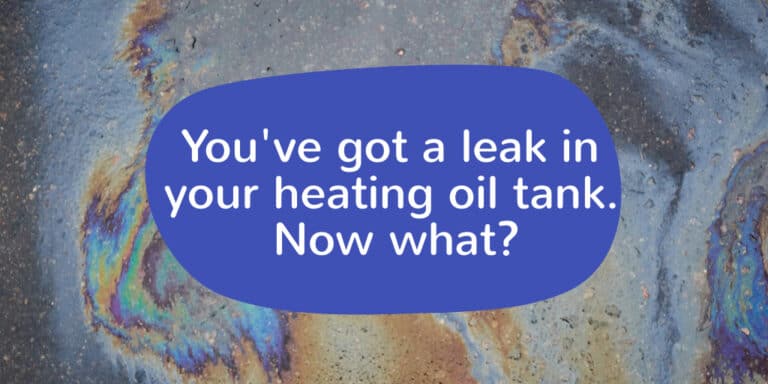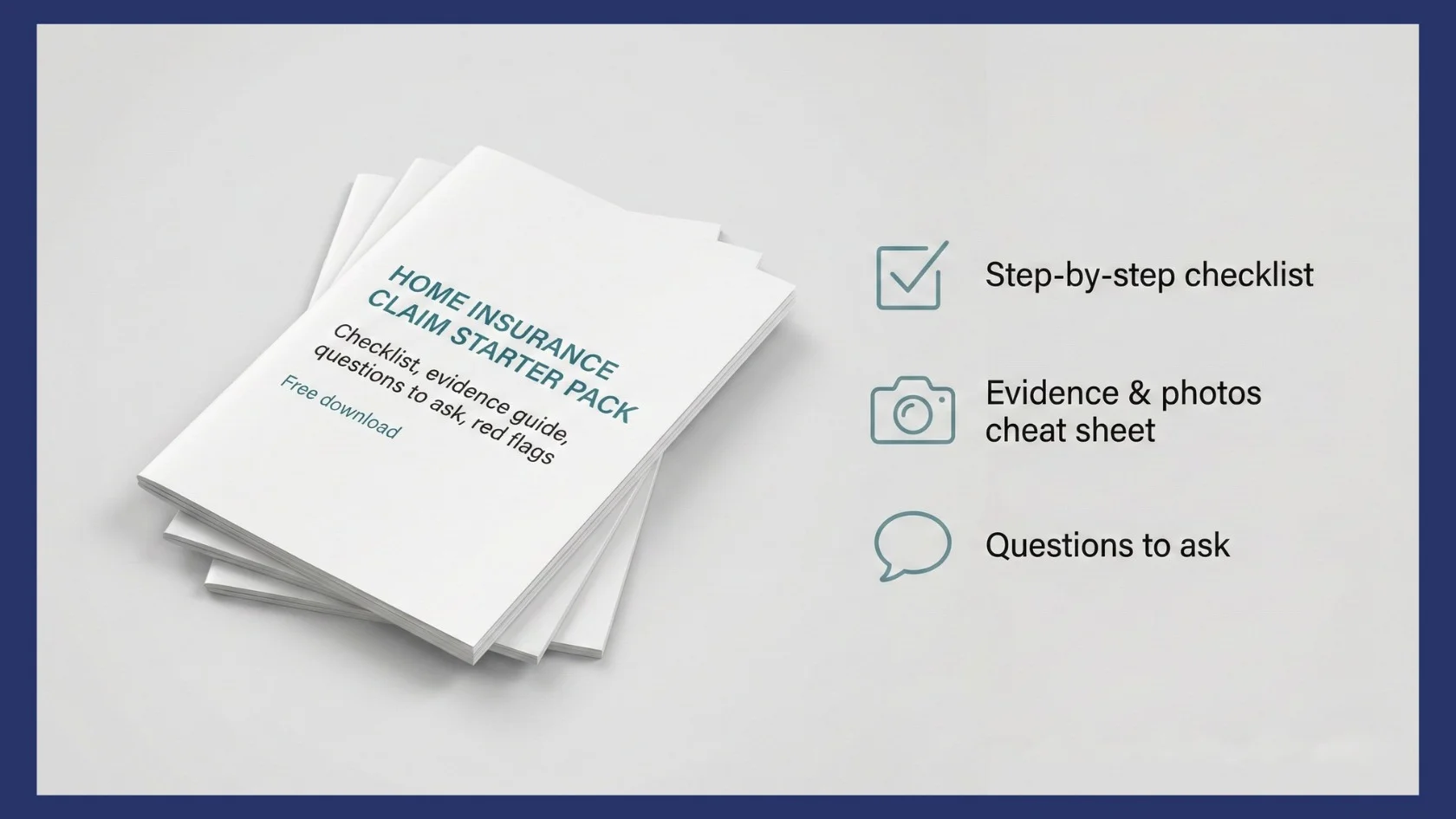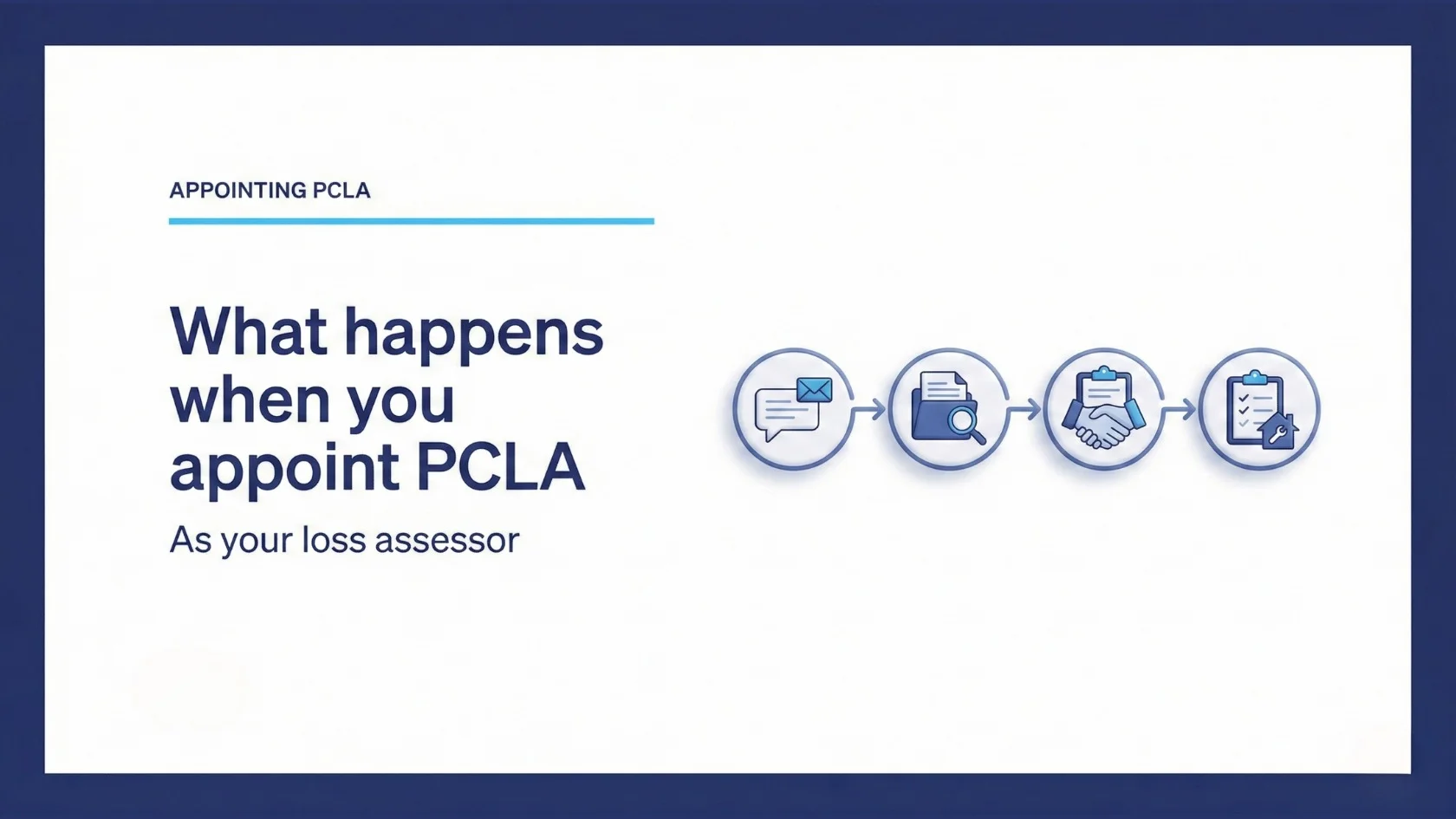In the UK, and particularly in Northern Ireland, where over 66% of homes rely on oil-fired central heating systems, the risk of heating oil tank leaks poses a significant concern. With winter approaching, it’s essential to be aware of how oil leaks can damage your property and the necessary steps for repair and insurance claims.
In this article, we’ll discuss the implications of heating oil leaks, the resultant property damage, the repair processes involved, and how Property Claims Loss Assessors (PCLA) can assist you in managing insurance claims related to such incidents.
How do I know if my home heating oil tank is leaking?
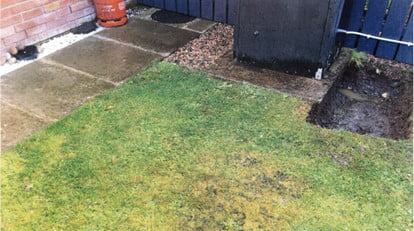
If you discover that your home heating oil tank is leaking, you must take action immediately otherwise you could end up with an expensive bill.
How to check your heating oil tank for a leak.
Regular inspections of your heating oil tank are crucial for early detection of leaks. Here are some steps to effectively check your tank:
Use Your Senses
- Smell: If you notice a strong oil smell around your tank, this could indicate a leak.
- Visual Check: Inspect your tank for any signs of damage, such as cracks or rust. Plastic tanks may whiten, crack, or split, while metal tanks might show rust and flaky paint around joints.
Inspect the Tank Components
- Gauge and Levels: Ensure your tank has a working gauge and monitor fuel levels regularly. Unexpected drops may indicate a leak.
- Valves: Check that all valves are securely closed and look for any signs of oil around the joints.
- Pipes and Valves: Examine all pipes and valves connected to your tank for dampness or oil stains, which could signal a slow leak.
Check the Surroundings
- Tank Location: Make sure plants aren’t growing around or over your tank, as they could interfere with its condition.
- Support Base: Ensure the tank is securely supported, with no cracks in the base or feet. Cracks can lead to leaks over time.
- Ground Inspection: Look for dead vegetation or oil stains on the ground underneath or around your tank. These are strong indicators of an oil spill.
Ask for Professional Assistance
- If possible, ask your oil delivery driver if they noticed any issues when replenishing your tank.
- If no visible leak is found but the level drops unexpectedly, and your tank is located away from your home, you may have a leak in an underground pipe. In such cases, contact PCLA immediately for specialist support.
What Are Heating Oil Leaks?
Heating oil leaks occur when oil escapes from an oil storage tank, oil fired boiler or oil feed line, due to various factors, including physical damage, corrosion, or poor maintenance. Such leaks can lead to significant environmental contamination, property damage, and health risks, making it essential for homeowners to take preventive measures and know how to respond if a leak occurs.
Understanding the implications of these leaks is crucial for homeowners, as they can lead to costly repairs and health risks.
Who do I call if my oil tank is leaking?
While you’ll be tempted to call your plumber, you should actually call PCLA first. As independent insurance loss assessors we will advise you with the most appropriate course of action. The last thing you need is to do something that might invalidate your insurance claim. Oil leaks can be expensive to rectify and you may be able to make a claim if you have the right insurance cover. PCLA will offer you free advice over the phone and our initial survey is also free.
Common Causes of Heating Oil Leaks
- Corrosion and Age: As heating oil tanks age, they become more susceptible to rust and corrosion. Metal tanks, in particular, can develop weak spots that may lead to leaks. Plastic tanks can suffer from exposure to the sun in summer or cold in winter, making them brittle over time and more susceptible to splitting.
- Environmental Factors: Extreme weather conditions, such as heavy rainfall or snow, can affect the integrity of the oil tank and its fittings.
- Improper Installation: If a tank is not installed correctly, it may be more prone to leaks. Poorly sealed joints and connections can also lead to oil escaping.
- Physical Damage: Tanks may be damaged due to external factors, such as impact from vehicles or falling debris. Even minor dents can lead to leaks if not addressed.
The Importance of Monitoring Your Heating Oil Tank
Regular monitoring of your heating oil tank is essential for early leak detection. By being vigilant and knowing how to identify leaks, you can take timely action to prevent extensive property damage. The following sections will discuss the specific types of property damage that can result from oil leaks.
Immediate Actions After Discovering a Leak
If you discover a leak in your heating oil tank, it is vital to act quickly to mitigate damage and health risks.
Stopping the Flow of Oil
- Seal the Leak: If the leak is small, you can try to plug it temporarily using an old cloth or duct tape. For larger leaks, it may be necessary to use more robust materials designed for pipe repairs.
- Contain the Oil: If oil is leaking, place a container or absorbent material underneath the leak to catch the spillage. This helps prevent further contamination of the surrounding area.
- Turn Off the Supply: If possible, turn off the oil supply valve to stop the flow of oil from the tank.
How Heating Oil Leaks Affect Property
Heating oil leaks can lead to several types of property damage, which can be challenging and costly to repair. Here are the primary impacts:
Soil Contamination
One of the most immediate effects of a heating oil leak is soil contamination. When oil seeps into the ground, it can significantly affect the surrounding environment:
- Environmental Damage: Oil can contaminate the soil, harming plant life and disrupting the local ecosystem. This contamination can spread over a wide area, depending on the leak’s severity and duration.
- Groundwater Contamination: If oil travels deeper into the soil, it poses a risk of contaminating groundwater supplies. This can have serious implications for drinking water and local wildlife.
Structural Damage
Oil leaks can also impact the structural integrity of your home, particularly if the oil travels under the foundation:
- Foundation Compromise: When oil seeps beneath your home, it can weaken the foundation, leading to structural instability. Over time, this can result in cracks in the walls, floors, and foundation itself, necessitating significant repairs.
- Damage to Basements and Crawl Spaces: If oil infiltrates basements or crawl spaces, it can cause extensive damage to insulation, flooring, and walls, leading to further structural issues and potential mould growth.
Health Hazards
The health implications of oil leaks are significant and should not be overlooked:
- Toxic Exposure: Heating oil can release harmful vapours that pose health risks to residents, especially if the leak occurs indoors. Prolonged exposure can lead to respiratory issues, headaches, and other health problems.
- Mould Growth: The moisture associated with oil spills can encourage mould growth, which can lead to allergic reactions and respiratory issues in occupants.
Repairing Property Damage from Oil Leaks
The repair process for property damage caused by heating oil leaks involves several crucial steps, focusing on restoring the affected areas and ensuring safety.
Assessing the Damage
A thorough assessment is the first step in the repair process:
- Professional Inspection: It is essential to have professionals inspect the site to determine the extent of the damage. This may involve soil testing to evaluate the level of contamination.
- Identifying Affected Areas: Assessing the property will help identify which areas have been contaminated, including soil, structural components, and any impacted landscaping.
Soil Remediation
Once the damage is assessed, the next step is to address soil contamination:
- Excavation: In many cases, contaminated soil must be excavated and removed. This process can be extensive, especially if the oil has travelled deep into the ground or spread widely and under a property.
- Soil Treatment: Depending on the level of contamination, soil may need to undergo remediation techniques. Options include bioremediation, where microorganisms are used to break down the oil, or thermal treatment to heat and volatilise the contaminants.
- Restoration of Soil: After the removal and treatment of contaminated soil, the area may require regrading and replacement with clean soil. Native plants can be reintroduced to restore the ecosystem.
Learn more about our oil spill remediation services.
Restoration of Structures
After addressing soil contamination, the next step is to repair any structural damage caused by the oil leak:
- Foundation Repair: If the foundation has been compromised, professional contractors may need to perform repairs, which can include underpinning or reinforcing the structure to ensure stability.
- Repairing Walls and Floors: Any damage to interior walls and floors due to oil exposure must be addressed. This may involve replacing damaged drywall, flooring, and insulation to prevent further moisture problems.
- Mould Remediation: If mould has developed due to moisture from the oil leak, it must be professionally removed to ensure a safe living environment.
- Landscaping Restoration: Any landscaping that has been damaged by the oil must also be restored, which may include replacing plants and reseeding lawns.
How much does it cost to fix a leaking oil tank?
It’s impossible to provide a definitive answer. If you have a small leak that can be plugged the cost will be relatively low. If you have a crack or an ageing oil tank the cost will be substantial. Depending on the size and type of your tank prices will range between £500 to £3000. However, the cost for fixing an oil spill goes beyond replacing a tank. You may have incurred damage to your garden or surrounding property. Oil leaks can be particularly damaging to your home. If you have suffered an oil leak, please call PCLA immediately to have the damage assessed by our qualified surveyors.
Does homeowners insurance cover a leaking oil tank?
Home insurance policies can include cover for oil leaks. However, you will need to check if your policy includes cover. Understanding your insurance policy can be daunting, so please call PCLA to ask for help understanding your policy. We have over 20 years in the insurance industry and will be able to provide you with free advice.
Understanding Your Policy
Home insurance policies may include coverage for oil spills and leaks, but the specifics can differ. Here are key points to consider:
- Coverage Limits: Review the policy to understand any limits on the amount that can be claimed for damages caused by oil leaks.
- Exclusions: Be aware of any exclusions that may apply to your coverage. Some policies may not cover leaks caused by neglect or lack of maintenance.
- Excess: Understand the excess that applies to claims related to oil leaks, as this will impact your out-of-pocket expenses.
Consulting with PCLA can provide clarity on your insurance policy, ensuring you are adequately covered for any potential incidents.
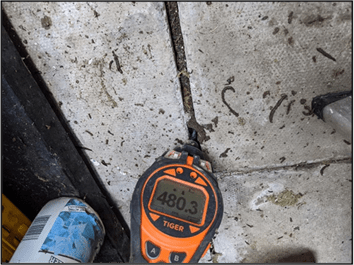
When should you call the insurance company?
It’s essential to engage a loss assessor, like PCLA, before contacting your insurance company. Loss assessors work on behalf of homeowners, ensuring that claims are properly presented and maximised.
Here’s what PCLA can do for you:
- Assessment of Damage: They will conduct a thorough assessment of the damage to your property caused by the oil leak.
- Guidance on Documentation: PCLA will advise you on the necessary documentation required to support your claim, ensuring that you don’t miss any critical information.
- Liaising with Insurers: PCLA will manage communications with your insurance company, advocating for your best interests throughout the claims process.
Remember, it is the homeowner’s responsibility to clean up an oil spill
All of us who have an oil tank at home are required by law to ensure that the oil is stored safely. We are also required to clean up any leaks or spills and deal with the consequences such as damage to neighbouring properties. Please make sure that your insurance policy provides adequate cover for any assessments and potential clean-up bills.
Here are your key responsibilities:
- Regular Maintenance: Homeowners must conduct regular inspections and maintenance of their oil tanks to prevent leaks.
- Prompt Response to Leaks: If a leak is discovered, homeowners are required by law to take immediate action to mitigate the damage and notify the appropriate authorities if necessary.
- Clean-Up Responsibilities: Homeowners are also responsible for cleaning up any spills or leaks that occur on their property, including hiring professionals if needed.
Ensuring that you understand these responsibilities will help you avoid legal issues and protect your investment. If you are unsure about any of this, please call PCLA for free advice and support.
Health Implications of Oil Leaks
Heating oil leaks can pose serious health risks to occupants of a home. If oil leaks occur inside your house, the following symptoms may manifest:
- Respiratory Issues: Exposure to heating oil fumes can lead to respiratory problems, including sore throats and difficulty breathing.
- Neurological Symptoms: Some individuals may experience headaches, dizziness, or nausea as a result of exposure to heating oil.
- Long-Term Health Risks: Prolonged exposure to oil fumes can lead to more serious health conditions, including chronic respiratory issues and neurological damage.
If you suspect that a leak has occurred inside your home, it is crucial to take immediate action to address the issue and protect your health.
Oil leaks and oil spills should be taken seriously. PCLA are FCA regulated insurance professionals who can manage your oil damage insurance claim for you.
6 steps to prevent your oil tank from developing a leak

Preventive Measures to Avoid Oil Leaks
Preventing oil leaks is far less costly and stressful than dealing with the aftermath of a spill. Here are essential preventive measures to consider:
Annual Maintenance
Scheduling annual maintenance for your heating oil tank and boiler with a qualified OFTEC (Oil Firing Technical Association) professional can help identify potential issues before they escalate. Regular servicing ensures that your tank is in good condition and compliant with safety standards.
Monitor Oil Usage
Keeping track of your oil usage is an effective way to detect leaks early. If you notice a sudden increase in oil consumption without a corresponding delivery, this may be a sign of a leak that requires immediate investigation.
Secure Your Tank
Ensure that your heating oil tank is secure against theft and damage. This includes:
- Fencing or Barriers: Installing fences or barriers around the tank can help protect it from accidental damage.
- Visibility: Keep the area around your tank clear of debris, which can obstruct visibility during inspections.
Post-Delivery Inspections
Always inspect your tank after an oil delivery. Look for any signs of damage or leaks that may have occurred during the delivery process. Address any issues promptly to avoid further complications.
Adequate Insurance Coverage
Review your insurance policy to ensure that you have adequate coverage for oil leaks. If you’re unsure about your policy details, consult PCLA for guidance and support in understanding your coverage options.
The Role of PCLA in Insurance Claims
PCLA (Property Claims Loss Assessors) plays a vital role in assisting homeowners in managing insurance claims related to heating oil leaks. Here’s how we can help:
- Expertise in Claims Management: PCLA’s team of experts understands the intricacies of insurance claims and can guide you through the process, ensuring that you receive the compensation you are entitled to.
- Thorough Assessments: PCLA will conduct a comprehensive assessment of the damage caused by the leak, helping to build a strong case for your claim.
- Advocacy: PCLA acts on your behalf during negotiations with the insurance company, advocating for your best interests and ensuring that your claim is processed efficiently.
- Stress Reduction: By managing the claims process, PCLA alleviates the stress and burden on homeowners, allowing them to focus on other important matters.
If you find yourself dealing with a heating oil leak, contacting PCLA can significantly improve your chances of a successful claim.
